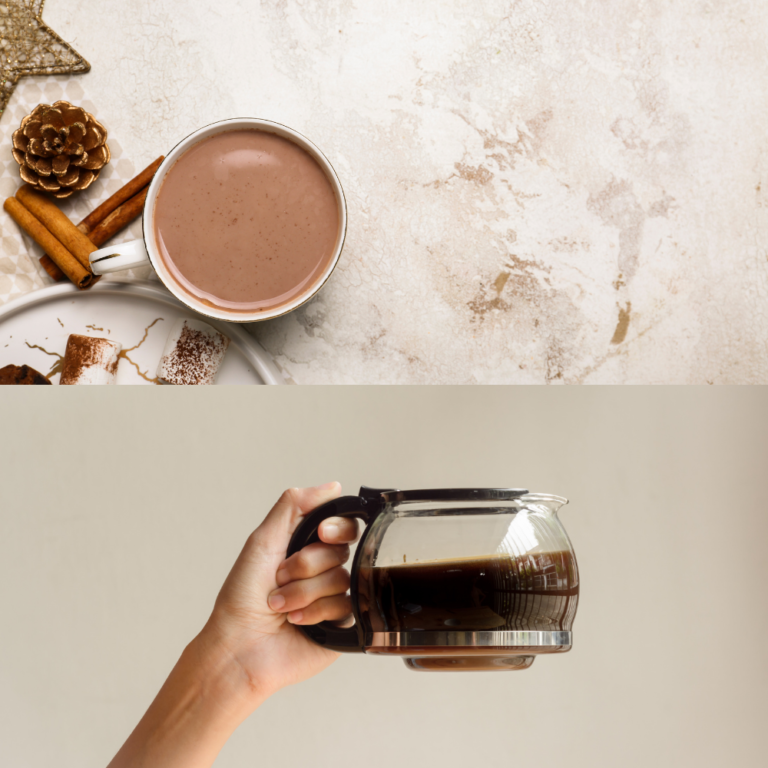CLICK HERE FOR SUBSCRIPTION PLANS – 2 x 610g CACAO NOW FOR ONLY $119 (SAVE $61) – LIMITED NUMBER AVAILABLE
CLICK HERE FOR SUBSCRIPTION PLANS – 2 x 610g CACAO NOW FOR ONLY $119 (SAVE $61) – LIMITED NUMBER AVAILABLE
Energy is a big concern for many people – whether it’s trying to stay awake during a late-night study session, combating that sluggish feeling in the afternoon, or recovering from a tough workout.

For some, coffee has become the go-to solution for all of these situations thanks to its ability to boost energy levels and focus. But, for people who don’t want to crash and burn after a burst of energy, raw cacao is the answer.
Here’s a breakdown of the difference between coffee and cacao:
Coffee is rich in caffeine, which is a stimulant that binds to receptors in the brain. While this results in increased alertness, it also comes with a number of side effects like jitters, anxiety, and irritability. Raw cacao has significantly lower caffeine content than what you’d get from a cup of coffee. A teaspoon of raw cacao powder has 6.6mg of caffeine whereas a shot of espresso would produce as much as 100 mg of caffeine.
Cacao also contains a compound called theobromine, which is structurally similar to caffeine. While it shares some of caffeine’s stimulatory effects, theobromine has less of an impact on your central nervous system. This means that cacao doesn’t have the same jittery effect as coffee does. Instead, theobromine offers a longer-lasting yet gentler and more pleasant energy throughout the day. This good source of energy also offers heaps of benefits.
Cacao is the raw, unprocessed seed of the cacao tree. It is not roasted or processed beyond what is needed to make it safe for humans. Unlike chocolates, ceremonial grade cacao doesn’t lose its nutritional value. It is rich in antioxidants, zinc, fibre, protein, selenium, and other essential nutrients that offer plenty of health benefits. Drinking ceremonial grade cacao makes you feel alert, energized, and perky. It is a great alternative to coffee if you want to have the extra buzz without feeling exhausted after. Tribal Moon Ceremonial Grade cacao is pure and cold-pressed, which is packed with living enzymes and nutritional value.

Caffeine and theobromine are both diuretics and stimulants. However, caffeine impacts the central nervous system, while the theobromine mostly focuses on muscles and the heart. Healthcare professionals recommend a maximum of 400mg of caffeine intake daily else, some adverse effects can be experienced including jitters, headaches, dependence, heartburn, and dehydration. Considering the caffeine content of coffee, it may approximately take 5 cups of coffee to exceed your caffeine limit. Raw cacao, on the other hand, will require at least 10 bars at (100g) to exceed the suggested caffeine limit.
Theobromine and caffeine may have similar effects on the body but theobromine’s effects on the body are milder compared to caffeine. Caffeine can cause a significant increase in blood pressure as it constricts blood vessels whereas theobromine does the opposite. It dilates blood vessels that, in turn, lowers blood pressure while improving blood circulation.
Cacao is a superfood that helps protect the cardiovascular system, promotes proper brain function, and boosts mood. Plus, it’s delicious! So without the jittery effects of caffeine or the crash associated with many energy drinks and shots, why not give raw cacao powder a try? You can easily incorporate Tribal Moon Cacao in different recipes or even as simple as your morning cup of hot beverage.
It’s no wonder why raw cacao is often praised as a great source of energy and one that is more sustainable than coffee. According to research, raw cacao has low levels of stimulants like caffeine while having higher levels of theobromine – a compound found in chocolate that helps increase blood circulation by dilating blood.
Cacao and select tea plants have theobromine, a naturally occurring stimulant. Raw cacao is the main source of theobromine which is why ceremonial grade cacao is known for its energy-boosting property. Raw cacao has been served to ancient Mayan Chiefs as it was seen as a gift from the gods. When scientists discovered cocoa trees in Central and South America, they called the genus plant “Theobroma” which roughly translates to “food of the gods” in Greek.
Studies have shown that theobromine can also help reduce blood pressure and boost mood. Additionally, it can offer cardiovascular benefits by stimulating the endothelium–a cellular lining of blood vessels involved in hormone regulation and immune responses–which may result in lower cholesterol levels.
As theobromine dilates blood vessels and enhances blood flow, it enables blood to excrete toxins out of the body through urination. However, you need to watch out for your intake as exceeding 800 mg of theobromine may cause nausea. Meanwhile, caffeine can suppress appetite which may result in loss of weight although long-term use can worsen bladder instability and more frequent bowel movements.

While caffeine stimulates the central nervous system, it alters moods and impairs brain function. Caffeine can minimize the risk of type 2 diabetes and increase stamina during exercise. On the other hand, theobromine does not cause this effect. Plus, cacao contains magnesium which can help relax our muscles to avoid muscle tics and cramps.
Overall, theobromine is a better energy source than caffeine. Not only does it provide the same boost of energy without the crash or jittery feeling, but it also has other health benefits that caffeine lacks. If you’re looking for a better way to get your daily dose of energy, consider adding cacao to your diet!

Get epic discounts on our cacao, free courses, event tickets and so much more
more than just a way of life
If you feel called to make a donation, please click here: DONATE
email: info@tribalmooncacao.org
Copyright © 2024
